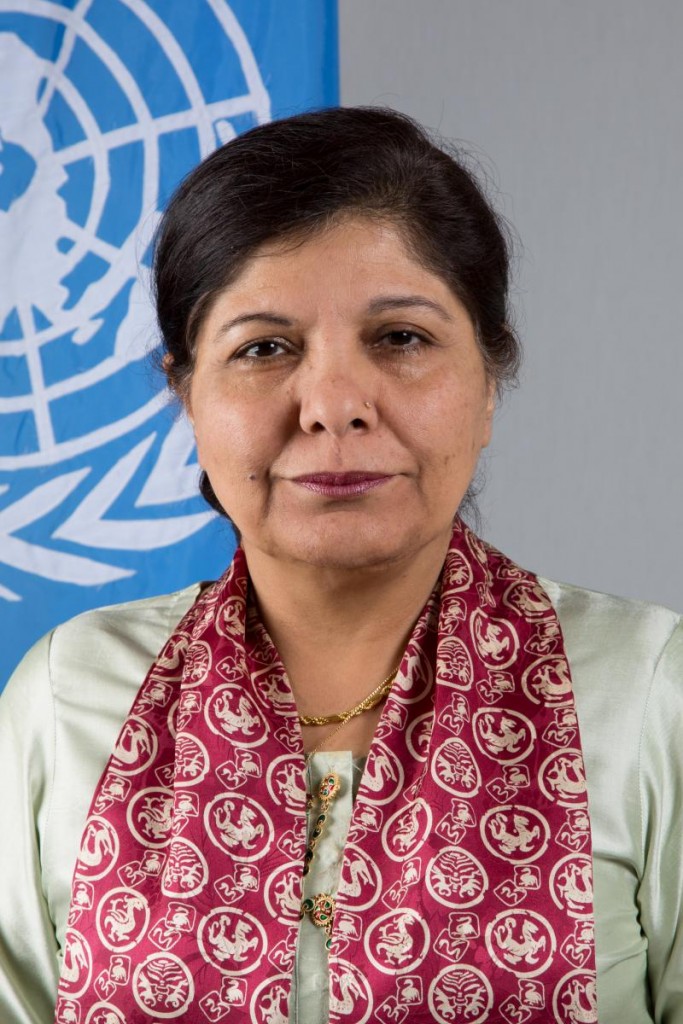ASTANA – EXPO 2017 is bringing people from all around the world to Astana, connecting them through dialogue while focusing the world’s attention on the enormous opportunities in moving to sustainable energy.
The international event highlights the reality that this is a global effort and countries must work together to share ideas and solve these challenges, United Nations Under-Secretary General and Executive Secretary of Economic and Social Commission for Asia and Pacific (ESCAP) Dr. Shamshad Akhtar said in a recent interview with The Astana Times.
“For the last few years Kazakhstan has done intensive preparatory work which has now culminated in the successful hosting of the expo,” Akhtar said. “The beautiful buildings at the expo site showcase incredible architecture. The spherical Kazakhstan pavilion at the centre of the expo is breath-taking. The expo space, through its architecture, provides the perfect environment to start thinking about the energy of the future. It invites creative thinking and a search for new ideas.”
“It is encouraging to see so many countries and international organisations sharing innovative solutions to promoting sustainable energy, offering a futuristic vision of energy at the expo. There is a strong sense of positive energy from the participants, be they leaders in government, from the private sector or international organisations. The many innovative technologies and projects presented here on future energy remind us that we can change the future for the better by continuing to innovate and supporting these technologies with the right policies,” she explained.
The ESCAP booth at the UN Pavilion presents information on the UN’s Sustainable Development Goal 7 (SDG7) on sustainable energy and work in support of its implementation being carried out across the Asia-Pacific. Part of this booth is an interactive presentation of the Asia Pacific Energy Portal. This is a web-based information platform designed to increase the accessibility and use of ESCAP’s regional energy information. It supports research and analysis and informs decision-making and policy actions. It is a unique analytical tool, which allows rapid access to the three main areas: data, policy and infrastructure, Akhtar explained.
Akhtar arrived in Astana to participate in the June 11 Meeting the Challenge of Sustainable Energy Ministerial Conference and drew attention to some outcomes of the event.
“Following the Ministerial Statement, there are number of areas where the Regional Commissions could develop joint projects. These include sharing good practices on the development of national sustainable energy strategies and action plans to align with future energy needs and the 2030 Agenda for Sustainable Development, along with dialogues on technology, policy and lessons learned from different countries and regions,” Akhtar told the paper.
“One of the outcomes of the Ministerial Conference on Sustainable Energy convened at the expo was to establish a Green Technology and Investment Centre in Kazakhstan. The centre offers good prospects for joint activities among member countries and international organisations. ESCAP has a sub-regional office for North and Central Asia located in Almaty, which is well placed to coordinate ESCAP-Kazakhstan cooperation on areas related to sustainable energy development,” she added.
ESCAP is the regional development arm of the United Nations for the Asia-Pacific region. ESCAP provides a forum for its member states to promote regional cooperation to achieve inclusive and sustainable economic and social development.
Sustainable energy is a very important component of this. ESCAP is promoting collective action on energy access, energy efficiency, renewable energy and trans-boundary energy connectivity, Akhtar said.
“We are also working to deepen regional economic cooperation and integration by improving transport, energy and ICT [information and communications technologies] connectivity while addressing barriers to trade and financial cooperation. This process can contribute enormously to the sustainable development agenda,” Akhtar said, adding that ESCAP provides a very effective platform to bring countries together to work collectively on the challenge of sustainable energy.

